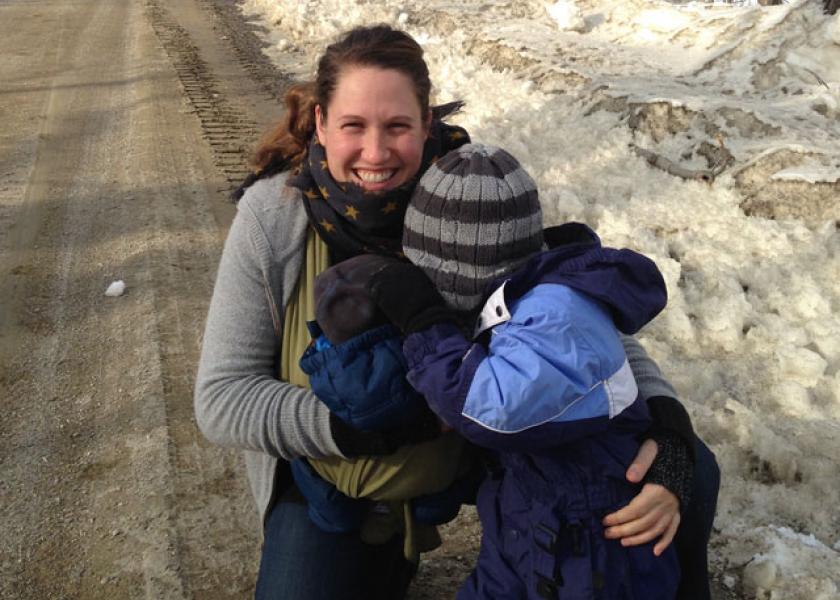Op-Ed: An Organic Check-off Would Contribute to Our Greater Good

By Abbie Corse, The Corse Farm Dairy
Windham County, Vermont
I am a sixth-generation dairy farmer in southern Vermont. My family’s been here since 1868, and we’ve always been dairy, always been pasture-based. We have a herd of about 60, mainly Holsteins. We became certified organic the same year we celebrated the farm’s 140th anniversary. We believe in what organic offers for the future, and we can’t imagine farming any other way.
I have weighed both sides of the debate over the organic check-off application that was recently submitted to the USDA by the Organic Trade Association. As a small organic dairy farmer, I understand some of the concerns: that the smaller operators may not have a voice in the check-off once it gets set up, or that the check-off really won’t make much of a difference. But ultimately, I think of my kids and the decisions I make for them on a daily basis.
I'm brought to the line from the Dr. Seuss book “The Lorax” that I've read so many times to my little boys: "Unless someone like you cares a whole awful lot, nothing is going to get different. It's not."
There is so much confusion now in the marketplace for consumers. Even though findings show that more and more consumers in every region of the United States are choosing organic, those same studies also show that consumers often don’t understand what the USDA organic seal really stands for, and are unaware of all of organic’s benefits. We need to let folks know that when they buy USDA organic they are buying good--for their children, their family, their environment.
Organic farmers need to have more research available to help us in our daily challenges. Research is vital to make our farms as productive and sustainable as possible, to adapt to a changing environment, to be on top of the latest innovations in organic practices. Although USDA’s organic research budget was recently expanded to $100 million over five years, that’s only a smidgeon of the total $1.2 billion allocated for all federal agricultural research. We need to increase the dollars going for research that we organic farmers can use, and that conventional producers could also adapt. Increased organic research is a win-win for all farmers.
If we, the organic community, don’t somehow carve out a pool to draw upon and support those efforts, who else is going to do it? We have an opportunity now to work together to promote all the good things about organic. We have an opportunity to create a pool of funds for organic research, and to bring new farmers into organic. The proposed check-off could raise over $30 million a year! Together we can accomplish far more than we can individually.
This organic check-off has been designed so that small farmers will have good representation and a say in how the money will be spent and all other decisions. For more than three years, OTA researched other check-off programs and what worked and didn’t work in order to put the best foot forward for this one to succeed. Organic producers will hold at least half the voting seats on the check-off board, and they would be directly elected by producers from their own region. Ultimately, if we don’t think it’s working out, after 7 years we can vote to end it.
Conventional agriculture won’t educate consumers about the importance of organic. Those efforts have to be supported by those of us who are breaking our backs everyday to try and make the organic food system become THE food system.
With an organic check-off, we’d be contributing to our greater good, and to the greater good of our kids, our families, our world. If we don't put our money where our mouth is, who is going to?
For more information on the proposed organic check-off program, go to groorganic.net.







